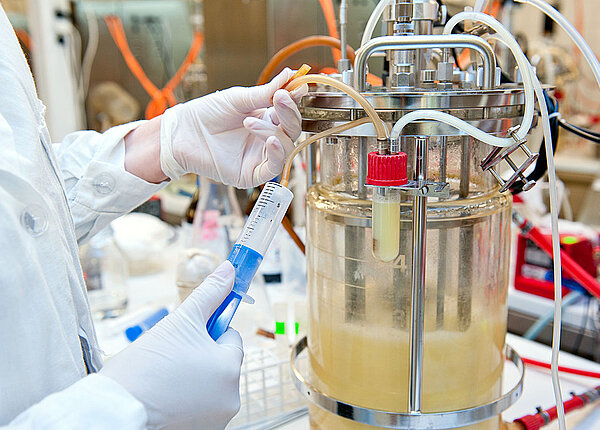English for PTA
VITAMINS
Seite 1/1 5 Minuten
Vitamin E has eight vitamers, including four tocopherols. The A vitamers include retinol, and provitamin carotenoids such as betacarotene. Vitamins are involved in a variety of biochemical functions. Vitamin A is a regulator of cell and tissue growth. The skin produces provitamin D3 with the help of sunlight. B vitamins, especially folic acid (B9), are essential during periods of cell growth during infancy and pregnancy and help prevent neural tube defects in babies. Vitamin K, with two natural vitamers, is involved in blood clotting and should be monitored in patients taking anticoagulants.
Male pharmacy customer: Hello, do you speak English?
PTA: Hello. Yes, a little. What can I do for you?
Last week my doctor did a complete blood count as she suspected that I was suffering from some kind of deficiency. Anyway, I’ve just come from her with a recommendation for vitamin D3. Apparently, the laboratory established vitamin D deficiency somewhere between severe deficiency, <12 ng/ml and “normal” deficiency of <30 ng/ml.
That does sound quite low! What else did she recommend?
Well she said I should get out in the fresh air more often, at least 30 minutes a few times a week to take in some sunshine.
I see here she added a note to remind you to take it regularly over the next eight weeks.
Yes, she said that I would need to go for regular blood and urine tests to determine the calcium concentration in the blood serum and the kidneys, something called hypercalcaemia, I believe.
Yes, you have to be careful as taking too much vitamin D can lead to things like cardiac arrhythmia, nausea, vomiting, and loss of consciousness. Those are only some of the acute consequences!
There are others?
The chronic consequences include increased urinary urgency, increased thirst and lack of appetite, kidney calcification, and kidney stones.
Are you sure I should take it after all these possible side effects?
Of course! I didn’t mean to worry you. Taken correctly and under medical supervision, you should have no problems! The effects of Vitamin D deficiency are much worse as they include everything from depression to MS, and bone loss!
Good to know.
Did your doctor tell you about foods that contain vitamin D?
No, I don’t think she did. Can you recommend any?
Certainly! Cod liver oil, oily fish like salmon, orange juice and dairy and plant milks fortified with vitamin D, sardines and beef liver.
I’ll pass on the last one! But the others sound good to me! Thank you for your help, goodbye.
Bye, bye!
You can find this article on page 74 in DIE PTA IN DER APOTHEKE 03/2022.
Catherine Croghan, Lecturer in English and native speaker
Vocabulary
| micronutrients | Mikronährstoffe |
|---|---|
| metabolic processes | Stoffwechselvorgänge |
| vitamers | verschiedene Stoffe einer Gruppe mit Vitamincharakter |
| infancy | Kleinkindalter |
| pregnancy | Schwangerschaft |
| neural tube defects | Neuralrohrdefekte |
| blood clotting | Blutgerinnung |
| monitored | überwacht |
| complete blood count | großes Blutbild |
| deficiency | Mangel |
| established | festgestellt |
| severe | schwerwiegend |
| cardiac arrhythmia | Herzrhythmusstörung |
| nausea | Übelkeit |
| vomiting | Erbrechen |
| loss of consciousness | Bewusstseinsverlust |
| urinary urgency | Harndrang |
| kidney calcification | Nierenkalkeinlagerung |
| cod liver oil | Dorschlebertran |
| salmon | Lachs |
| dairy | Molkereiprodukte |
| fortified | angereichert |
| beef liver | Rinderleber |











